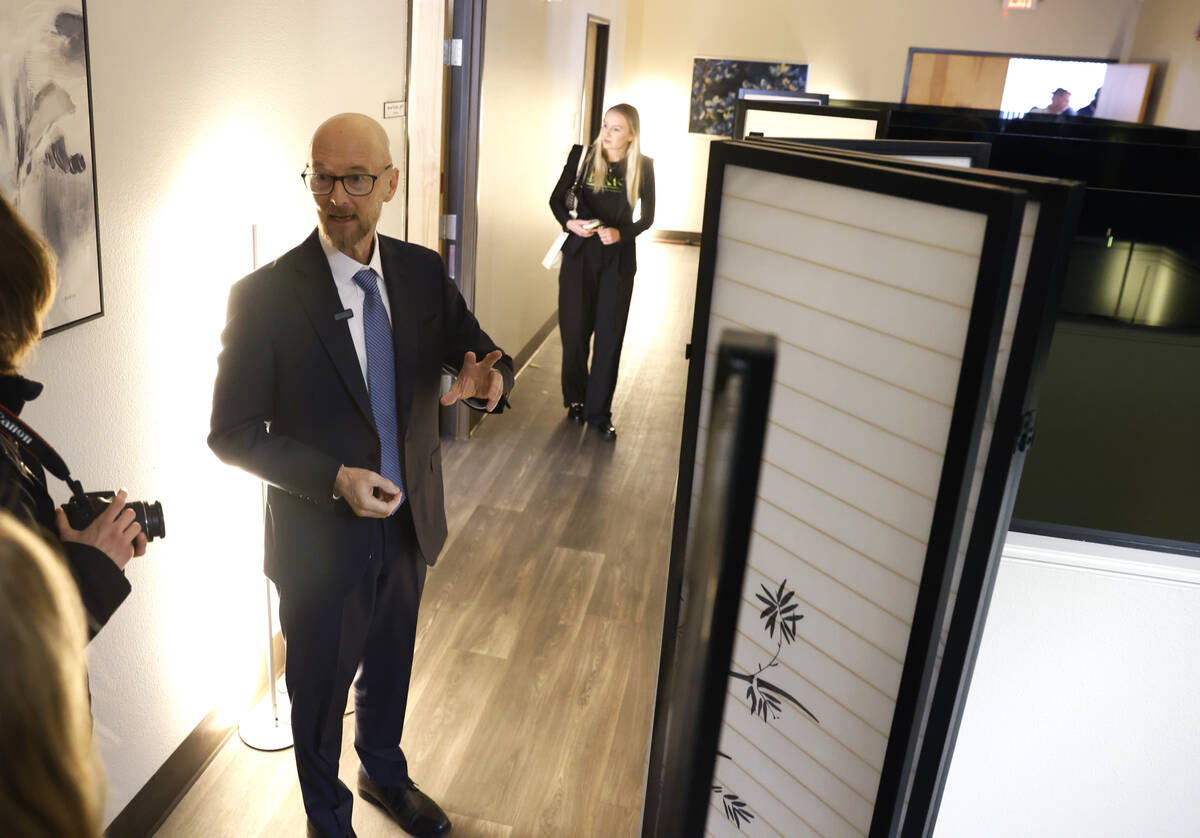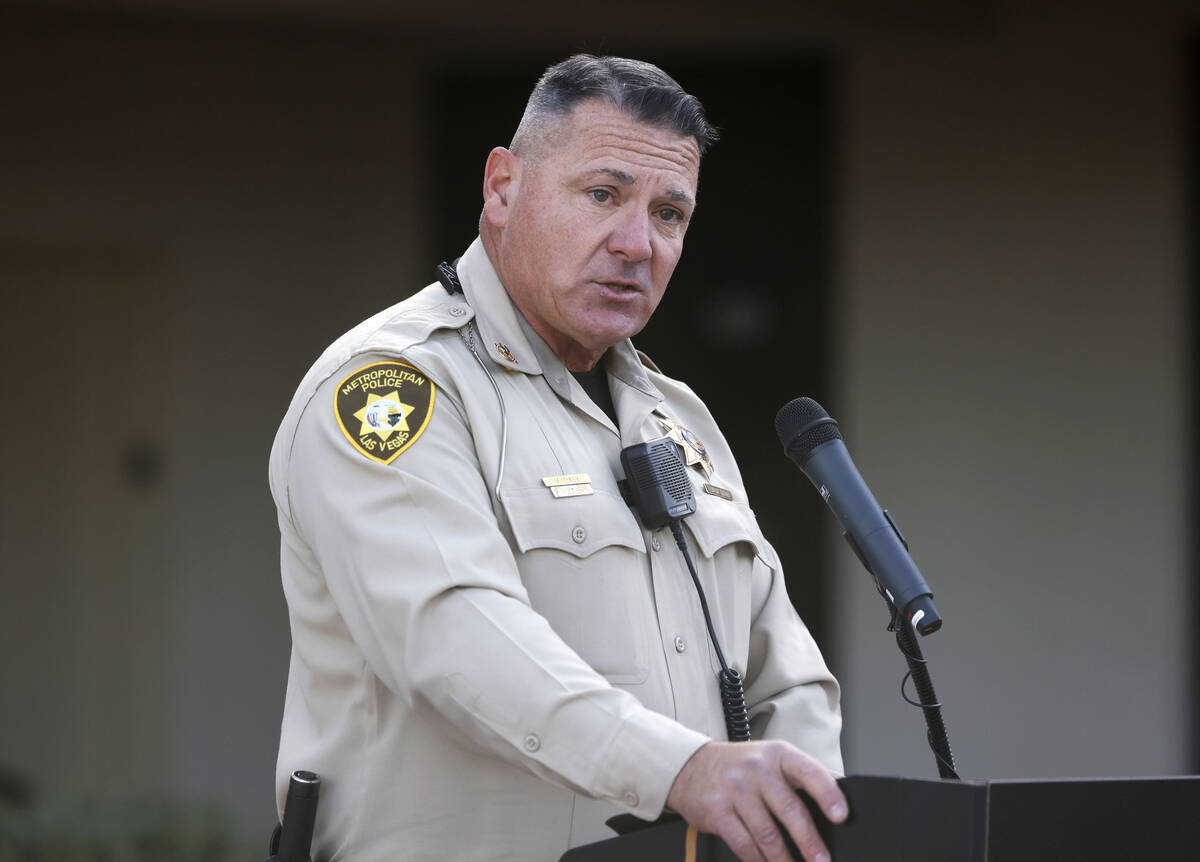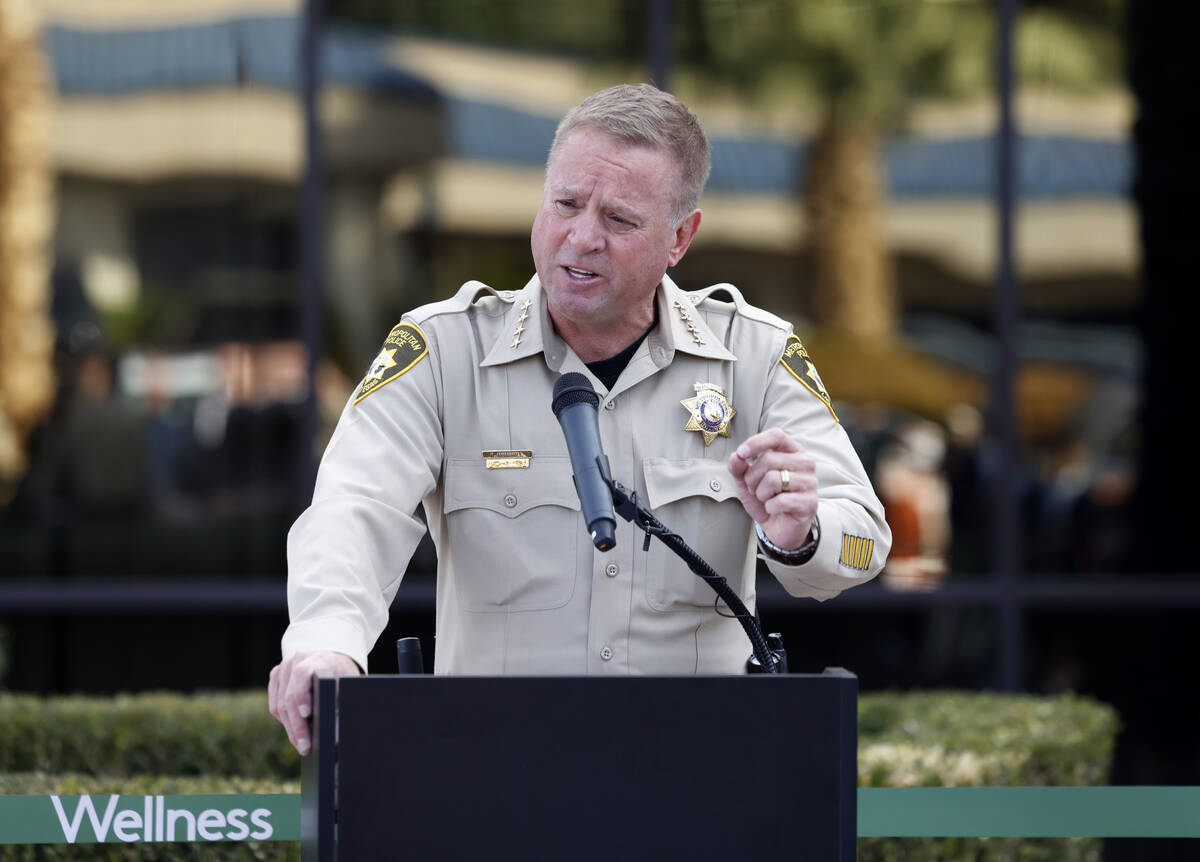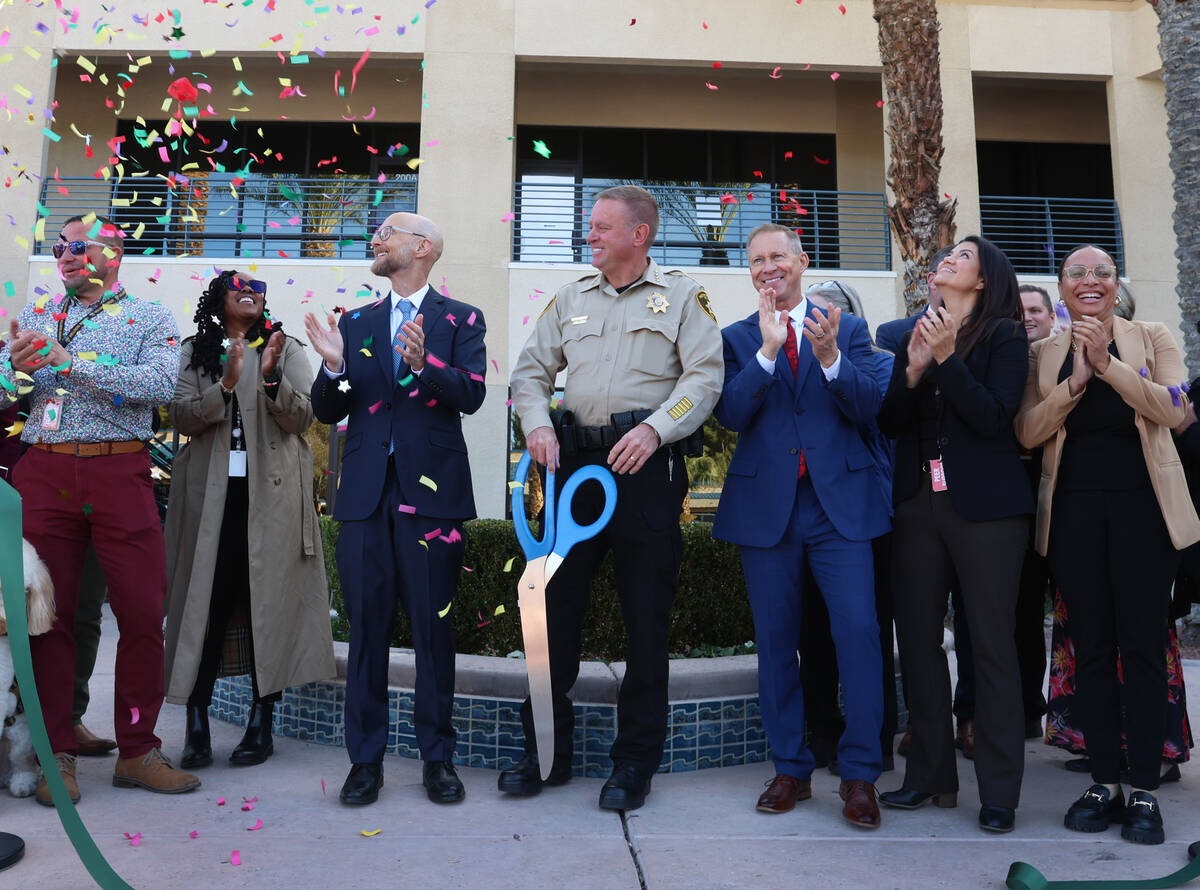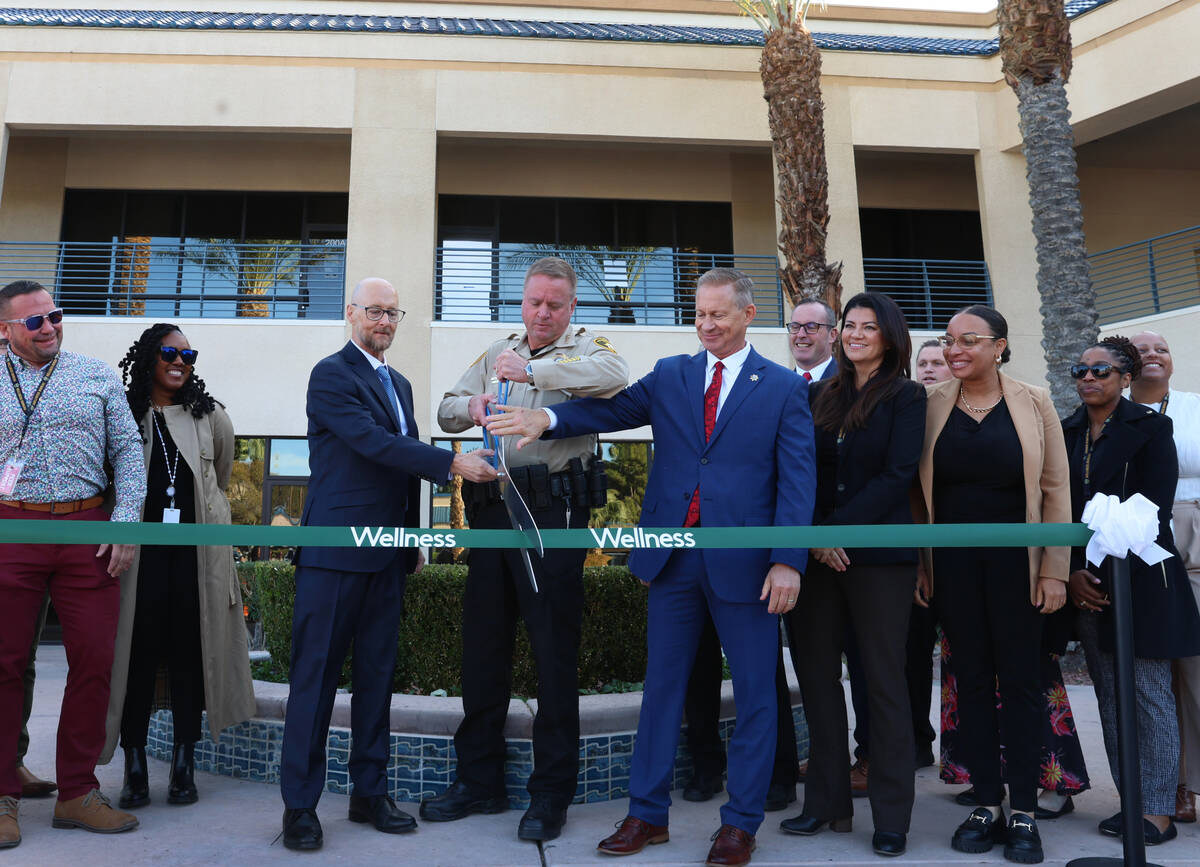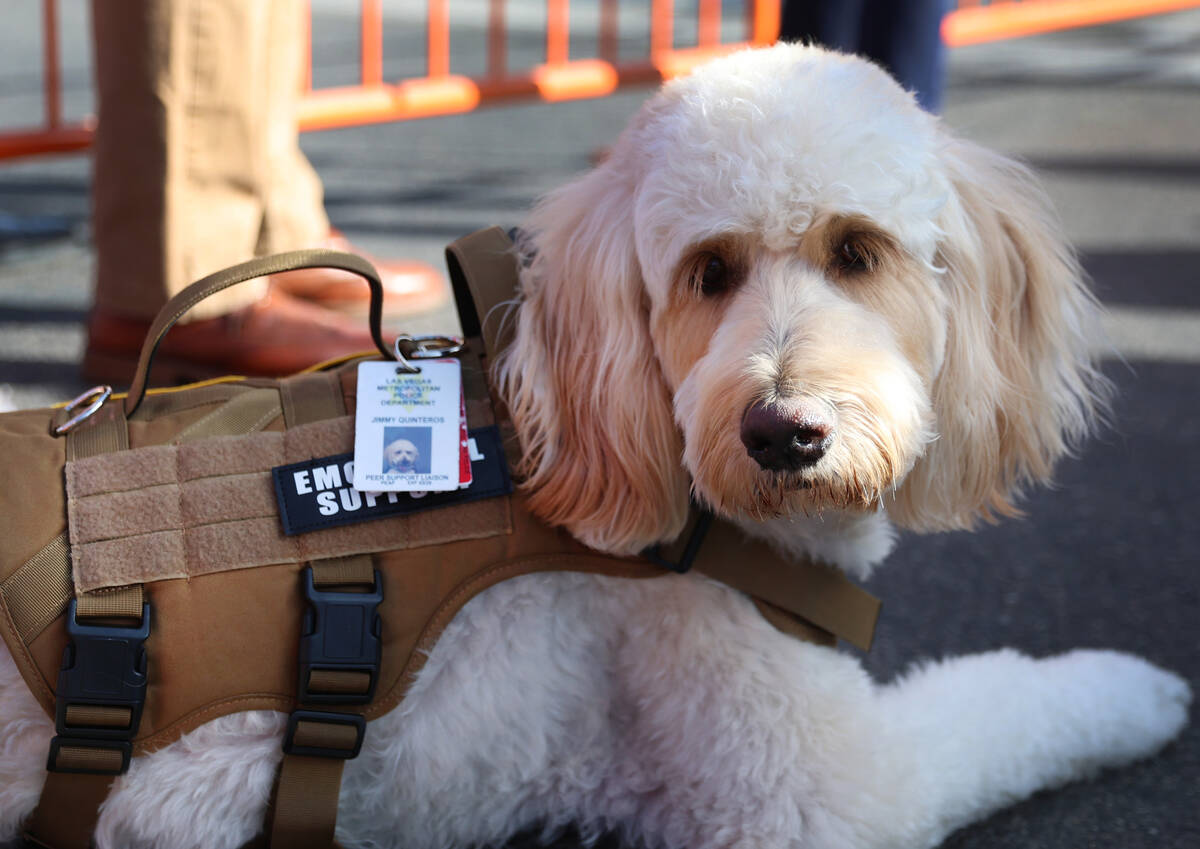New Wellness Bureau offers mental health help for Las Vegas police
A Metropolitan Police Department officer said that while normal citizens drive around Las Vegas and see parks where they played with their children or restaurants where they had a memorable date, police officers driving around the city see dead bodies.
“The sights, sounds, smells and places bring those memories flooding back, from seeing a husband take his last breath after being shot by his wife over a simple argument to seeing a father and uncle performing CPR on their two children that they just found floating at the pool,” Metro Officer Michael Lemley told a crowd of dozens gathered in the Medical District on Tuesday morning.
Lemley has been working at Metro for 26 years. Over time, his experiences weighed on him and in July, he started seeing a therapist through Metro’s Wellness Bureau.
“I found myself in a mental health crisis,” he said. “I was spiraling out of control and had thoughts that nothing or no one could help me. There was only one way out of this place in my head. The demons were winning.”
Through therapy, he began to heal.
Lemley shared his story at a ribbon cutting for the Wellness Bureau’s new home, a physical space in the Medical District for officers to seek out help.
At Tuesday’s event, Sheriff Kevin McMahill said the new bureau was designed to “take care of the men and women of this police department” in ways that have never been done before, calling its opening a “very historic moment.”
Officers and their families sat alongside special guests including Mayor-elect Shelley Berkley and Metro’s service wellness dog, Jimmy.
‘Dirty little secret’
When Lemley was hired at Metro in 1998 after serving with the Marine Corps, officers “did not talk about things you saw or how they made you feel.”
“You learn to push those feelings down and attempt to lock them away,” Lemley said. “The problem is, eventually those memories come back.”
“Until recently, it was taboo to talk about or seek mental health assistance,” he added.
Depression, anxiety, PTSD and suicidal ideation were “considered career killers.”
McMahill said that there has been a “dirty little secret” in law enforcement, which is that when officers suffered, they were taught other coping mechanisms: “drinking, divorce, all kinds of bad, bad behaviors.”
Before McMahill became sheriff, he said he was taught to never take one minute to “really understand how it is that this job changes us.”
McMahill said his wife Kelly McMahill, a retired Metro deputy chief, had come up with the idea a couple of years prior. When he decided to run for Sheriff, revitalizing the idea of a wellness bureau was at the top of his list.
At the bureau’s helm is its director, psychologist James Tenney. On bad days, Tenney said that officers can speak with a peer supporter within 10 minutes, receive a call with a clinician that day and schedule an appointment for that week for a free, confidential session.
Tenney credited the sheriff with changing the culture on the force, allowing officers to feel more comfortable accepting help and being open about it.
This level of comfort was a surprise to Tenney, who said he “thought the blue line would keep us from being able to have a public awareness.” Instead, the Wellness Bureau is being embraced.
A new space
The new bureau is located less than a mile from Metro’s headquarters, something that Tenney said was a non-negotiable.
Each peer supporter and clinician was encouraged to decorate their office according to their personality and treatment style, Tenney explained.
Special attention went into making the waiting room comfortable, as Tenney said oftentimes this is where people feel the most stressed.
The space includes recliners and meditation pods. The building itself “didn’t cost us any more,” McMahill said. The department “consolidated some things” and clinicians were hired by “converting some positions.”
Tenney was hired on for the new role, but had previously worked with Metro as a psychologist brought in to help officers in cases of officer involved shootings.
“While we’re heading in the right direction, we still have a long journey ahead of us,” Lemley said. “The Wellness Bureau is a huge step in the right direction.
If you are thinking about suicide, or are worried about a loved one or friend, help is available 24/7 by calling or texting the Lifeline network at 988. Live chat is available at 988lifeline.org.
Contact Estelle Atkinson at eatkinson@reviewjournal.com. Follow @estellelilym on X and @estelleatkinson.bsky.social on Bluesky.




